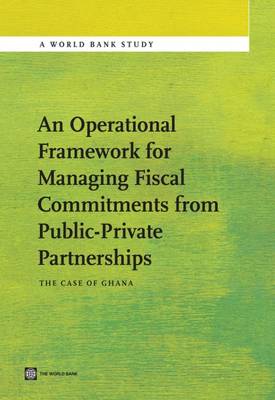World Bank Studies
1 total work
An Operational Framework for Managing Fiscal Commitments from Public-Private Partnerships
by Riham Shendy, Helen Martin, and Peter Mousley
Published 8 March 2013
The 'National Policy on PPP' recently approved by the Government of Ghana (GoG) sets out the government's intention to use Public-Private Partnerships (PPPs) to 'improve the quality, cost-effectiveness, and timely provision of public infrastructure in Ghana.' The PPP Policy highlights the role of the government's financial support to PPPs, as well as the importance of putting in place a system to manage the associated fiscal commitments (FCs).
This study proposes an operational framework for managing fiscal obligations arising from PPPs in Ghana. This framework aims to ensure that PPP FCs are consistently identified and assessed during PPP project preparation, and that these assessments are fed into project approval. The framework will also ensure that PPP FCs are monitored, reported on, and budgeted for appropriately over the lifetime of PPP projects. To that end, the report outlines roles and responsibilities, concepts, and processes for managing PPP FCs, drawing on international standards and practices, bearing in mind existing institutions and capacities in Ghana. The report also suggests legislative additions and capacity-building needed to establish this framework in practice.
This study proposes an operational framework for managing fiscal obligations arising from PPPs in Ghana. This framework aims to ensure that PPP FCs are consistently identified and assessed during PPP project preparation, and that these assessments are fed into project approval. The framework will also ensure that PPP FCs are monitored, reported on, and budgeted for appropriately over the lifetime of PPP projects. To that end, the report outlines roles and responsibilities, concepts, and processes for managing PPP FCs, drawing on international standards and practices, bearing in mind existing institutions and capacities in Ghana. The report also suggests legislative additions and capacity-building needed to establish this framework in practice.
